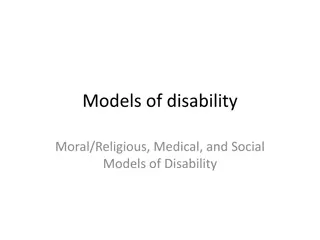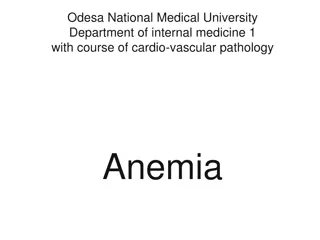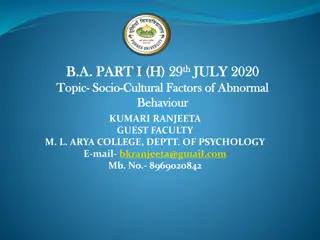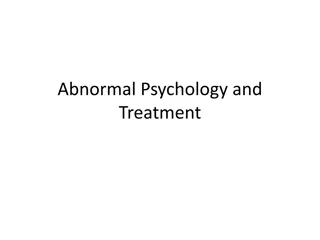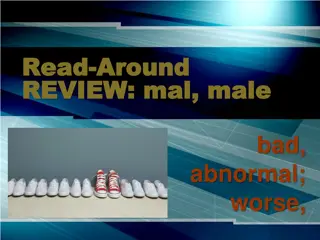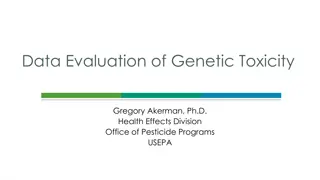Understanding Models of Disability: Moral, Medical, and Social Perspectives
The concept of disability is explored through moral/religious, medical, and social models. Impairment refers to a loss or abnormality in structure or function, while disability is a restriction in performing activities. The discussion also delves into the significance of person-first language and th
0 views • 35 slides
Understanding Red Blood Cell Abnormalities in Anemia: A Detailed Overview
This in-depth article delves into the various types of red blood cell abnormalities seen in anemia, such as anisocytosis, poikilocytosis, spherocytes, ovalocytes, acanthocytes, codocytes, drepanocytes, and stomatocytes. It explains the characteristics of each abnormality, their significance in diffe
0 views • 45 slides
Understanding Socio-Cultural Factors of Abnormal Behavior in Psychology
Exploring the impact of socio-cultural factors on abnormal behavior, this article delves into the influence of societal pressures, cultural norms, and economic status on mental health. The socio-cultural model emphasizes how societal criteria shape perceptions of abnormality, highlighting the role o
0 views • 7 slides
Understanding Normal and Abnormal Behavior: Perspectives and Definitions
Normal behavior varies from person to person and society, influenced by individual preferences and societal norms. Abnormal behavior is characterized by an inability to function effectively or personal discomfort. The concept of normality and abnormality in psychology raises complex questions about
2 views • 8 slides
Understanding the Epidemiology of Disability and Its Impact on Health
Epidemiology focuses on studying disease causes, prevention, and control. Impairment, disability, and handicap are defined by the WHO. Impairment refers to loss or abnormality of function, disability refers to limitations in normal activities due to impairment, and handicap indicates social disadvan
0 views • 31 slides
Understanding Voluntary Manslaughter and Diminished Responsibility in Criminal Law
Voluntary manslaughter is a legal concept where certain special defenses can reduce a murder charge to manslaughter, giving judges discretion in sentencing. Diminished responsibility, introduced by the Homicide Act, allows individuals suffering from abnormal mental functioning during a killing to ha
0 views • 23 slides
Understanding Abnormal Psychology and Treatment
Explore the world of abnormal psychology and treatment through a variety of engaging activities, discussions, and role-plays. Delve into topics like defining abnormality, different causes of mental illness, and various treatment approaches. Join in to enhance your understanding of mental health diso
0 views • 56 slides
Unveiling the Roots of "Mal" and "Male": Exploring Words Associated with Badness
Delve into the origins and meanings of the terms "mal" and "male" as they relate to negative connotations like badness, abnormality, and wrongdoing. Uncover words like malfeasance, malnourished, malefactor, and more that shed light on various aspects of bad behavior and health conditions.
0 views • 24 slides
Pediatric Ankle and Knee Pain Imaging Findings
Images show calcifications in Achilles tendon and deep to plantar fascia in a 7-year-old with ankle pain, as well as a cortical abnormality in the distal femur of a 16-year-old girl presenting with knee pain. The significance of these findings requires further evaluation by a medical professional.
0 views • 6 slides
Evaluation of Genetic Toxicity in Pesticide Programs - Data Overview
The presentation by Dr. Gregory Akerman discusses the evaluation of genetic toxicity, focusing on genotoxicity data for glyphosate, including gene mutation, chromosomal abnormality, and primary DNA damage. It explores the consequences of genotoxicity, such as cancer risks and cell death, along with
0 views • 27 slides
